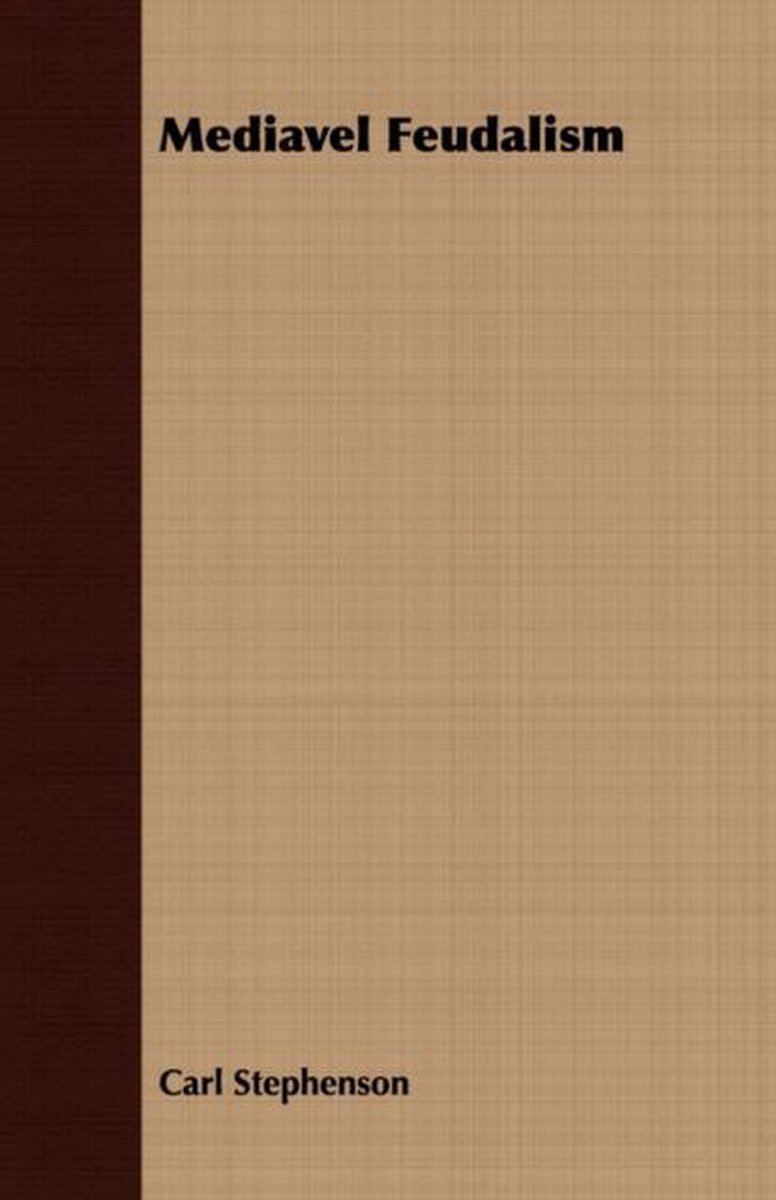Mediavel Feudalism
Mediaeval Feudalism BY CARL STEPHENSON - Mediaeval Feudalism has enjoyed a distinguished career. Eminent historians of America and Europe have reviewed it with high praise in the most respected historical journals. To the college freshman it has been a vade mecum in the awesome task of mastering such compli cated feudal principles as subinfeudation and liege homage. The omniscient graduate student has at first reading whisked through it with dis dain, casting it aside for the imaginative hypoth eses of a Marc Bloch or for the impressive tomes of German historians, only to come meekly back to it to obtain his bearings and a sense of pro portion. Seasoned scholars and teachers have read the book with discrimination, realizing that behind each page stood years of research and thought devoted to the study of feudalism in mediaeval Europe they in turn have recom mended it to their students. In this book, deceptively simple in its ease of explication, Professor Stephenson has digested the vast body of writings on feudalism, supple mented it vith his own research, and then pre sented the subject with conclusions, observations, and suggestions that must be read through by anyone who hopes to understand mediaeval feudalism. Upon reading the book Carl Becker penned a note to his good friend Carl Stephenson which the latter proudly acknowledged as the highest compliment to his scholarship. After praising the style, Becker, himself an unsurpassed stylist, wrote that such a simple and straightfor ward book could be written only after its subject had been completely mastered. Regarded as one of Americas foremost medi aevalists at the time of his death in 1954, Carl Stephenson had a long andsignificant scholarly career. A student of Charles Gross and Charles Homer Haskins at Harvard, he later studied with the renowned Henri Pirenne of Belgium and established close scholarly ties with such eminent mediaevalists as Professors Ganshof, Galbraith, Halphen, Prou, and Frolich. Most of his teach PrefMorv Xotc ing was done at the University of Wisconsin and at Cornell, where he wrote his well-known books and articles. Interested only in what the document said and bitterly opposed to easy theorizing and glib gen eralization, Carl Stephenson did his best work on those institutions found in mediaeval Europe be tween the Loire and the Rhine this area where influences spilled back and forth over feudal boundaries lent itself to the comparative method wherein lay his strength and contribution to mediaeval scholarship. Writing far removed from western Europe and its acrimonious academic feuding, he dispassionately demolished much of the prejudiced nationalistic writing devoted to praising or damning Germanic or Latin institu tions. His greatest joy came from demonstrating that a tax, a commune, or seignorialism and feu dalism were not peculiar to one area but were common to all western Europe they developed not as products of racial genius but in response to basic social, economic, and political requirements of the Middle Ages...
- Ean/ISBN: 9781406734980
- Review:
